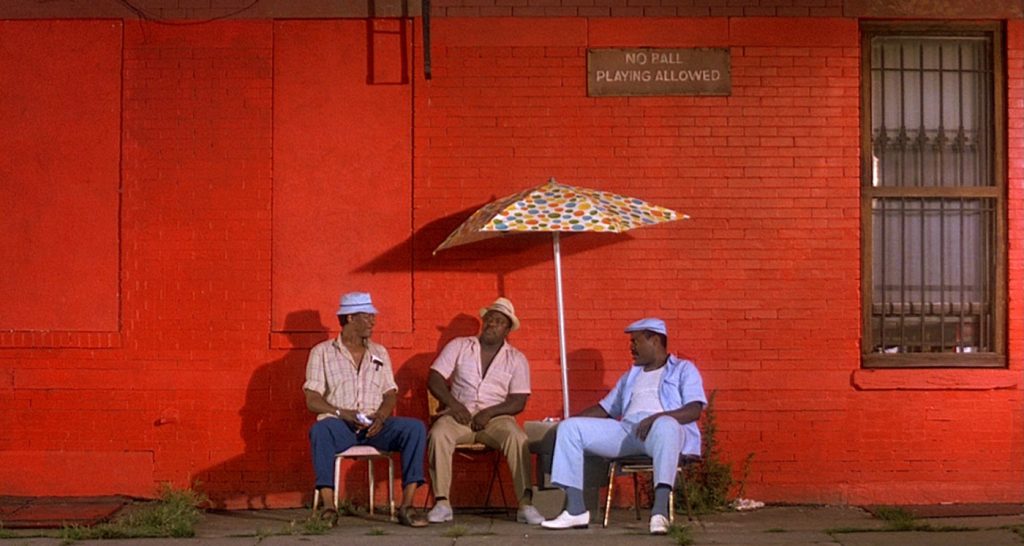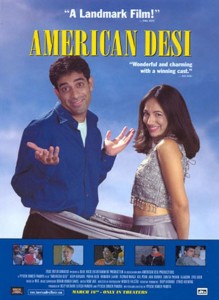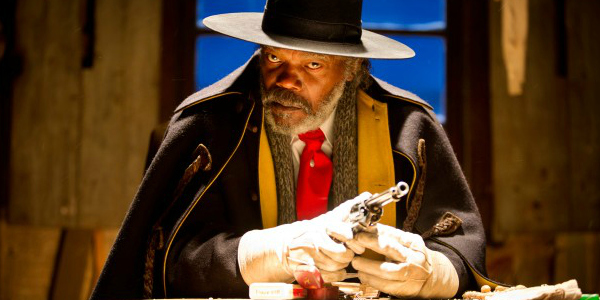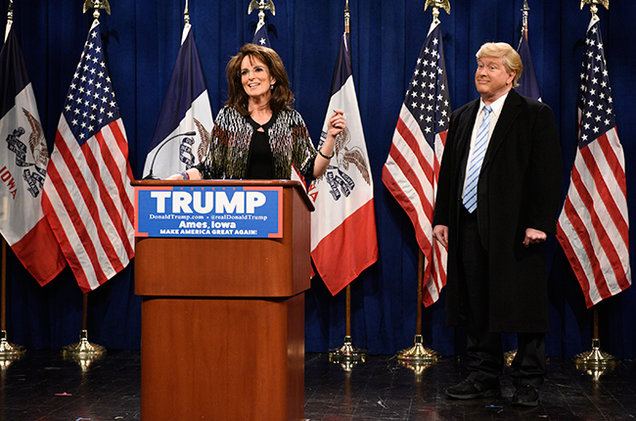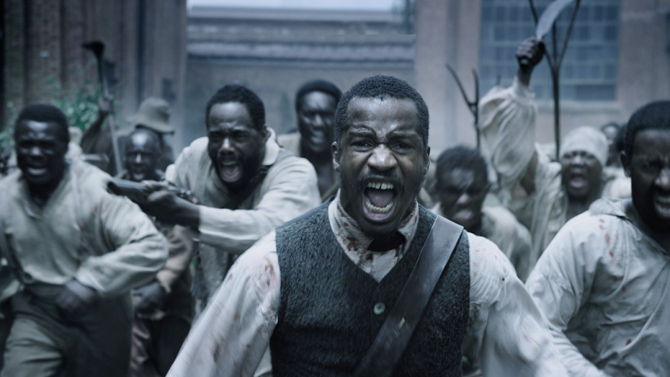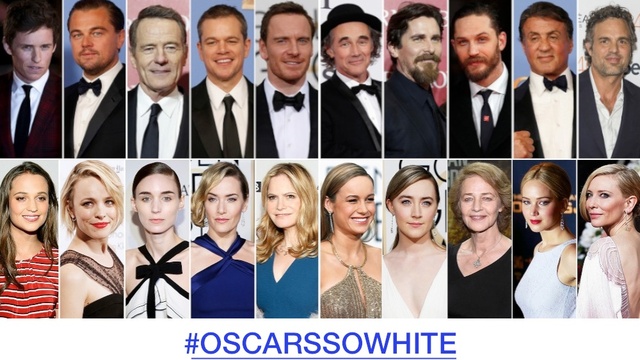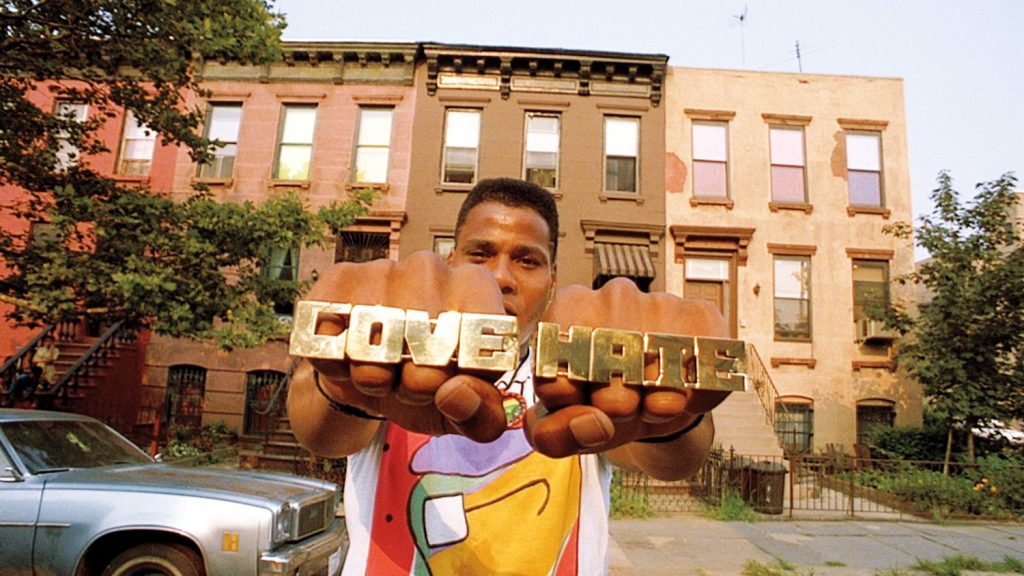In Which Andrew Tells… is a series of articles about a certain topic, film or event, where Andrew – the unlikely voice of reason – tells that particular topic, film or event a hard truth. Whether that be how a particular film could be fixed, or how well an event worked, this is solely Andrew’s opinion and is not always intended to be taken seriously.
Previous editions of In Which Andrew Tells…
…Oscar Winner Alejandro G. Iñárritu How to Fix The Revenant.
———————————————————————————————————————————————————————————————————
This particular article was inspired by two specific episodes of great podcasts. I recommend listening to both of these episodes before reading this article as I will be running through why these episodes impacted me and encouraged me to write this piece.
It’s Terrific! by Web Bist – Episode 12: American Desi
No, Totally! – Episode #97 – Asian America and the Chinese Dollar Store
There are also slight spoilers for the film Dean Spanley.
Edited: To include notation of April Reign – creator of #OscarsSoWhite hashtag.
I am a thirty two year old white male. I am married. I have a good job. I’m on my way to owning my home. I live a mostly good life. Whenever I go to the cinema, I am fortunate enough to be able to see men around my own age, who are also white, succeeding in life being portrayed on screen. Providing sometimes ideal role models for other white males my own age to follow and look up to. While we may not all be as good looking as Leonardo DiCaprio, we at least have our own role model to look up to in real life. We, white males of the world, are lucky to have such a wide array of role models to look up to and see possible versions of ourselves in their performances. This is, after all, the great power of cinema.
For me though, Leonardo DiCaprio – as talented as he may be – is not a role model I look up to. He often doesn’t portray characters which I can relate to. For me, the actor – and more specifically, the performance – that I most relate to, is Peter O’Toole in the little seen Dean Spanley. In this wonderful film directed by New Zealander Toa Fraser, O’Toole plays Fisk Senior, a cranky old man who’s interest in life is revived when he meets the titular Dean Spanley (Sam Neill). There is an instant connection between Fisk and Spanley, one that throughout the film soon reveals itself as being quite a long reaching historical connection between the two. See, Spanley is a reincarnation of a dog that Fisk Senior had when he was young. In one of the most heartbreaking scenes in a film – for me at least – we see Fisk Senior ask about why Spanley left him all those years ago. Spanley’s response is that he simply had to go. The film closes with Fisk Senior obtaining a new dog and forming a new relationship with it.
What does this have to do with being a white male may you ask? Well, simply put, Dean Spanley displays characters who I can relate to. As a lifelong dog lover, seeing someone respond so wonderfully as Peter O’Toole does to the passing of their canine friend is something I can relate to. Being able to discuss with that friend at a later stage in life as to why they moved on is something that every dog owner would hope they could do. After all, isn’t it one of lifes greatest cruelties that a man and his dog are separated by the frustrating beast that is death? This theme of love and caring for a dog is one that I wholeheartedly relate to, and one that I actively seek out in cinema as it is something I find most rewarding.
Surely though, this theme is universal and doesn’t require a specific ethnicity to embody the characters for it to be relatable? If we’re to believe some of the things the internet tells us, isn’t race a non-entity? The simple answer is yes, this theme is universal – as are many themes within cinema. While we may not all be able to relate to certain struggles that many characters go through (for example – I’m sure nobody can truly understand what Matt Damon’s Mark Watney went through in The Martian, for there has never been anyone stranded on Mars in real life), usually the themes that are presented in films are so universal that anybody, anywhere, can sympathise or see a little bit of themselves in these roles. That is, after all, the great universality of cinema. It is a medium which anybody and everybody can appreciate, and for most films, find something to relate to.
So, that’s the simple answer. The long, difficult answer however is no. Let’s go back to what I was saying about being able to relate to Peter O’Toole’s character in Dean Spanley. Part of why I’m able to relate to that character is the fact that I see myself in him – a fact which is furthered because he is a privileged white man. At this point, you should listen to the episode of It’s Terrific! that I’ve linked to above.
When listening to Web Bist’s great podcast It’s Terrific! and its episode on the little seen film American Desi, I was reminded of the power of cinema and the power of telling stories that embody various cultures. Web relates in his approachable manner what the film means to him as someone who has emigrated to America and tried to fit in. He talks about someone dealing with their own culture and how the move to America altered him and his relationship with his family. At its core, American Desi reminded Web that what he was going through was normal and that someone else has been through it before.
Now, there have been many ‘fish out of water’ films created throughout the years, and no doubt it’s a feeling that all of us can relate to whether it be by remembering changing schools, starting a new job or just simply trying to fit in. It’s a universal theme, and often because it’s a universal theme it is one that is co-opted by mostly white casts. Box Office return (sadly) usually trumps the desire for equality. But in American Desi’s case, it struck a nerve with someone who could relate to it, not because it was a film about trying to fit in, but because it was a film specifically a about their culture, their religion, created seemingly specifically for them alone.
While this article is mostly related to film, I’d be remiss if I didn’t at least mention the great No, Totally! episode titled Asian America and the Chinese Dollar Store. This episode focuses on host Shaun’s reaction to a Saturday Night Live skit relating to Sarah Palin and Donald Trump as well as a subsequent review that focused solely on a racially heated joke about Chinese dollar stores. While many people may brush off Shaun’s criticism of the episode and the review, they err on the wrong side of the argument. To understand this argument even further, we need to take a look at the #OscarsSoWhite story and the main reaction to this story.
For those living under a rock, for two years in a row the Oscars nominated only white performances in film in the acting categories. One of the main arguments that stemmed from this years debate was that there were performances that were worthy of nominations – specifically Idris Elba in Beasts of No Nation, Samuel L. Jackson in The Hateful Eight and the cast of Straight Outta Compton. One of the notable trends regarding these performances is that they are black male performances. Arguably, most of these performances were deserving of nominations (and in my opinion, Samuel L. Jackson was deserving of a win for his role).
Let’s break this issue down briefly. More black performances deserve to be nominated, that’s a given. However, (and this point is not made to belittle the argument at hand), one thing to take away from this debate is that not only do more black performances need to be nominated, but also more black roles need to be created, or even a typical white role needs to be given to a person of colour. And here is the key: the debate is not solely about getting more black actors on screen, but all people of colour on screen regardless of what sex they may be.
America is – like most first world countries – a hugely multicultural society. It is made up of people from all walks of life. They all have stories to tell, but more importantly, they all want to see their stories be told on film or on TV. What angered and frustrated Shaun in that episode of No, Totally! wasn’t the lack of representation of his culture (after all, we can agree that both Sarah Palin and Donald Trump are the whitest of white – especially after Trump’s desire to not distance himself from the KKK support that he’s gotten) but the way his culture was used as a joke.
It’s here that the ‘accepted racism’ within our culture raises its ugly head. For want of a better term, the ‘racist tropes’ that often find themselves falling into daily conversations need to be discussed and understood. The often ‘off the cuff digs’ at different cultures seems to be so widely accepted in society that even ones own culture may appropriate the digs at themselves. ‘Asian drivers are the worst’ or ‘Indians always smell funny’ are just a couple of widely accepted racially heated terms that seem ofay in regular culture. Calling someone a ‘biffo’ has a cultural relevance to it that is offensive, as is the term ‘spaccing out’ or wearing blackface. Closer to home, one only needs to look at the way indigenous Australians are treated in the media as perpetual dole bludging drunks and often the brunt of many jokes – all the while indigenous Australians face rising abuse and increasing suicide rates. Through many different ways, these terms carry through into our day to day lives – often we may not know the true meaning of them, or in the case of the Chinese dollar story and blackface, the issue is right there in what is being said or done. It’s logical to not say or do these things, but oddly, logic is in short supply.
There’s no denying the power of cinema – it can change the world, it can empower, it can belittle. Look at a film like Battle of Algiers for example – a purely fictional film that portrays a very real war that occurred. It shows a foreign country in change, and managed to create a debate within the country it was filmed. Or even Spike Lee’s prescient masterpiece Do the Right Thing which predicted the race riots in the early 90’s.
With that in mind, there is the argument that foreign films already do a good job of showcasing stories relating to different cultures. Take Jacques Audiard’s great 2016 film Dheepan – a film that showcases multiple relatable and empowering characters who are foreigners in a new land, seeking safety and a new life. But, one only needs to look at the American box office reports for the past ten years to see how well foreign language films rank with audiences (spoiler: hardly anybody sees them – even when they’re nominated for Best Picture like the great Michael Haneke’s Amour). This is why films made for American audiences that respect different cultures and cast people of colour in roles that usually would have gone to a white actor are important films to support.
This is not always about seeing ones culture on screen – that does happen often (take the recent Tina Fey/Amy Poehler comedy Sisters for example where the Asian characters all work at a nail salon) – but seeing ones culture represented in a non-negative manner. Note, it does not have to be positive, it simply needs to not be stereotypical (which often easily translates to being subtly racist), not revert to cultural tropes that are often not right. I know it’s easy to implant a character into a film that ticks a couple of cultural boxes and voila, you have your Asian store clerk who will defend their store when it’s held up because ‘it’s all they have’. This is not a character, it is an idea.
To rise above these tropes is important and respectful – but, above all else, it often creates more interesting films to watch. By having varied roles and varied characters on screen, we as an audience see a better representation of our own culture on screen. Ideally, having a more respectful representation of varied minorities on screen would help break down real world issues (I’m not saying cinema can destroy racism, I’m simply hoping it could assist in chipping away at the cold mass that is racism).
I personally love watching films that represent different cultures. One of the best things about living in Perth, Australia is that I get to see the varied stories from all over the world thanks to the great independent cinemas we have. In a way, it’s how we manage to ‘travel the world’ and experience cultures that we wouldn’t always be able to experience. So, selfishly, I want to see more culture represented because I like to see stories about the world and stories about people who live in this world. It’s something to inhabit a world with billions of other people, it’s something else altogether to want to learn, grow, understand other cultures.
But, not so selfishly, I want to see more of these stories because of course I live in a world with billions of other people. I want these other billions of people to be able to experience their culture on screen and feel the same feelings I get. It’s about inclusivity and acceptance, about allowing people to enjoy an art form collectively as much as possible. Nobody is taking away stories or roles for white people, they would simply be providing equal opportunities and stories in cinema – something that should already be abundant. If that means recognising our own racial problems and addressing them, then great, for we will only improve as people when we start to accept others.
It’s also important that roles for people of colour are created that aren’t solely race related roles. Take the Best Picture winning 12 Years a Slave for example – it’s a stunning film that leaves a mark on your soul, but it does that because it displays real life atrocities occurring. The upcoming Birth of a Nation already has Oscar whispers simply because it’s a story about slaves uprising. Now, my criticism is not that films about slavery or fighting for rights don’t have a place, – they do, this is a part of history that is important to discuss – it’s more that they are the main theme of films starring people of colour that get attention. It’s why the lack of attention and love for a film like Creed by the Academy of Motion Pictures – especially for Michael B. Jordan’s visceral performance – is even more damning. Creed takes a well-loved tale (Rocky) and gives it a unique perspective that isn’t focused on the colour of ones skin.
Again – just to clarify – there is a place for films about the struggles for equality and rights as a human being. But, let me ask, how many films about struggles for equality and rights star white actors or characters? Without doing a search, I can name off the top of my head possibly, Dallas Buyers Club as the last ‘notable’ release to do so. Correct me if I am wrong though.
One topic that is worthwhile touching upon before I wrap up is the rise of the Chinese influence in American cinema. Understandably, there is a financial choice to have an increased Chinese presence within films – American films have started to become popular in China and its neighbouring countries, thus requiring a more notable presence of Chinese actors in these films. On paper this sounds great – more Asian actors getting more roles in big budget blockbusters. But, due to the rules that China follows, these films can’t display as many of the ‘progressive’ ideas that America could display. Gay couples? Not at all. Ghosts? No way! It’s a one step forward, one step backwards move.
While it’s great to see that this kind of move allows greater representation from Asian actors, it’s a move that comes at a cost. That cost of course is pandering to Chinese regulations and creating only positive characters. But Andrew, didn’t you say that people of colour needed to be portrayed in a positive light? Well, yes, you’re right, and thank you for reading this far. But, the ‘positive portrayal’ needs to come from natural progression, rather than simply having a person of colour portray a role simply because that’s what a country dictates. By that character simply being a ‘positive character’, that also then makes it that characters sole trait. Sure, good writers and directors can create varied characters with those traits, but there is still that feeling of America standing as Oliver with a handful of Chinese characters asking China for more money.
With that in mind, I am hopeful with this ‘China development’ that there is a flow on effect of people hoping to break into the Chinese market by adding in people of colour into their films. Look at Pacific Rim for example – the co-lead of that film was Japanese actress Rinko Kikuchi. While it wasn’t the massive blockbuster that it was initially hoped to be, it did manage to do $111 million in China alone. Now, of course, it would be stupid to think that this was solely on Kikuchi’s casting, but hopefully her appearance at least went some way to helping boost that box office.
So, this is all steps that the industry can take to help with equality on film – but what about the consumer? After all, aren’t we just shouting into a void when we write a bunch of words on twitter and slap an #OscarsSoWhite tag onto it? The easy answer is: go and see films which have people of colour cast in them. The more there is a box office response to seeing these sorts of films, the more they will be made. On top of that, if you see a film which has people of colour cast in them, and you enjoyed that film, then talk about it! The power of social media alone shows that there are people paying attention. Slap your own hashtag onto it – ‘Man I loved #AmericanDesi’ – and it’ll boost the reach of that film and your love will hopefully be noticed.
Most of all, keep talking about this issue. There is a reason that #OscarsSoWhite exists and is having an impact on the way the Academy Awards work – it’s because of the social response to the lack of representation of people of colour in the nominee lists. It also helps that people like Spike Lee and Jada Pinkett-Smith voice their disapproval as well. Of course, this isn’t an issue that the Academy alone can change – for them to nominate these performances, there needs to be people willing to cast people of colour in roles that usually wouldn’t go to them. So, keep talking about this, keep raising the issues and addressing the problem, because it’s through this continual discussion that change will occur.
EDIT: I’d be remiss if I didn’t mention the creator of the #OscarsSoWhite tag – April Reign (@ReignOfApril on Twitter). Without the creation of this hash tag, then it’s possible that the discussion of equality in cinema would not have been so widely discussed.
This ‘think piece’ may be a little too preachy for some, especially coming from a white person, and I’m aware that white people stating thoughts about racism can be fairly cringe worthy and incorrect, but hopefully you understand that this comes from a place of wanting acceptance and correct representation of the world we live in, in what is for me the greatest art form out there – cinema. Also, a huge thank you if you made it this far and didn’t fall off your chair rolling your eyes.
Make sure to subscribe to It’s Terrific! and No, Totally! Both are podcasts which are not only entertaining, but informative, thought provoking, intriguing and eye opening. I don’t have many podcasts set to auto-download, but these two I definitely do and always look forward to a new episode.

